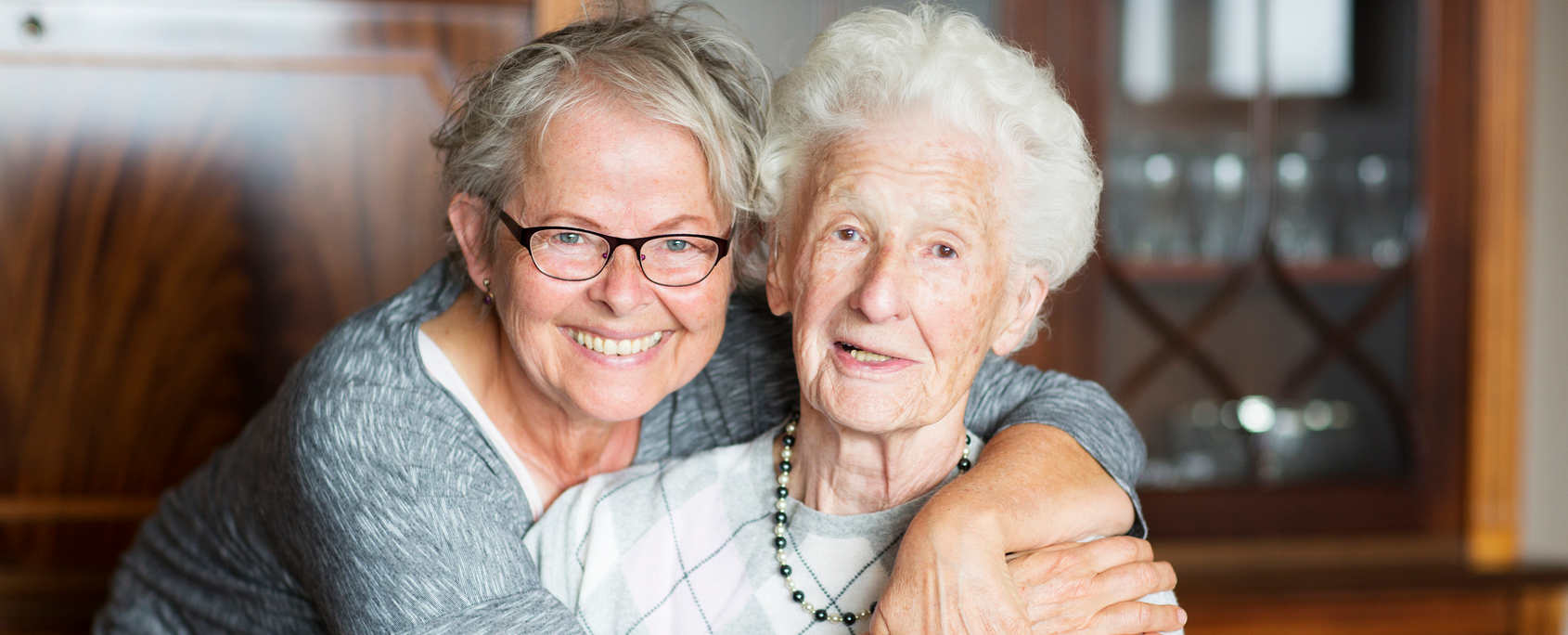
Caring for a loved one can be tough. AgeWays’s Information and Assistance telephone line often takes calls from family caregiverswho are overwhelmed and don’t know where to turn for help. Perhaps they have been suddenly thrust into the role of caregiver after a health crisis hits an aging parent or other family member (Maybe a parent has fallen and had a fracture; or been diagnosed with Alzheimer’s or another chronic disease; or maybe they’ve realized that their aging loved one just can’t take care of themselves the way they used to and needs help.) Whatever the situation, knowing who to turn to and how to get help can take some of the stress out of caregiving. We have put together a quick list of things that every caregiver should do to help them get their bearings and make the role of caregiver a little easier.
1. Assess the situation and build a thorough understanding of your parent or loved one’s condition.
How does it affect their ability to take care of themselves? How does it affect their behavior? If they have Alzheimer’s or another progressive condition, how will that look in the coming years? How will their needs change? A geriatric assessment, from a geriatrician is a great place to start, and will provide a lot of feedback on bio/psycho/social needs of the individual along with prognosis. Knowing what you and your loved one is facing is key so you can know what to expect and how to address current and future needs.
2. Understand where you can turn for help when you need it. What organizations and institutions are there to help? What government programs might be available to help? Places to turn include local Area Agencies on Aging, the Veterans Administration, religious institutions and disease associations like the Alzheimer’s Association. AgeWays serves six counties in southeast Michigan/metro Detroit (Livingston, Macomb, Monroe, Oakland, St. Clair and Washtenaw.) Our Information & Assistance telephone line (800-852-7795) is staffed by folks who are truly experts in the programs and services available to help older adults, people with disabilities and family caregivers in the six counties we serve. We can help you see if your loved one might qualify for one of our programs or refer you to another organization or resource in your area that might be able to help. Our I&A Resource Specialists are available Monday through Friday from 8 am to 5 pm. Area Agencies on Aging exist in every part of the country and they all offer similar help with finding information and local resources.
3. Build some knowledge about the legal system when it comes to caregiving. What are advance directives, a living will, power of attorney? Everyone should have these documents, regardless of age and ability. A knowledge of what these are, how to get them in place and who to designate is important. It is also important to make sure that ALL involved family members agree and understand the roles of the designee.
4. Find some outside help so you can take an occasional break. Consider hiring a paid caregiver or using an adult day facility if appropriate. Ask family and friends what they might be able to do. Are there family, friends, neighbors that can also help with little items such as cutting the lawn or helping to cook a meal a few times per week? Approach them with specific tasks that you would like help with, instead of issuing a blanket call for help. Small pieces of assistance from friends, neighbors and other family members can often really add up to make a huge difference in the overall picture.
5. Find ways to take care of yourself. Caregivers often try to do too much and find themselves having their own health problems. Caregiving can take both a physical and emotional toll, and you can’t take care of your loved one if your own health begins to deteriorate. Be sure to carve out the time you need to take care of yourself and make that time sacred. Stay healthy by making time for your own doctor appointments and eating healthy, exercising regularly, and making time for family and friends. Our Powerful Tools for Caregivers class can help you learn how to manage stress and carve out that much-needed “me” time. Taking care of yourself will make you better able to care for your loved one. Finding a support group for caregivers where you can share thoughts, feeling and ideas with others on the same journey can be helpful as well.
Where Family Caregivers Can Turn for Help
Local Area Agency on Aging
In southeast Michigan, there are three Area Agencies on Aging that serve Metro Detroit, each serving a specific geographic area. They provide help with Information and Assistance, government-funded long-term care programs and Meals on Wheels. If you’re looking for an AAA in a different part of the country, visit the National Association of Area Agencies on Aging.
AgeWays
Serves Livingston, Macomb, Monroe, Oakland, St. Clair and Washtenaw counties
800-852-7795
AgeWays.or
Detroit Area Agency on Aging
Serves the City of Detroit, the five Grosse Pointes, Hamtramck, Harper Woods and Highland Park
(313) 446-4444
DetroitSeniorSolution.org
The Senior Alliance
Serve the 34 communities of southern and western Wayne County
(800) 815-1112
aaa1c.org
Veterans Administration
Detroit Regional Benefit Office
800-827-1000
Disease Specfic Associations
Alzheimer’s Association-Greater Michigan Chapter
Caregiver support, education and advocacy
(248) 351-0280
Michigan Parkinson Foundation
Information, education and support groups
(800) 852-9781
National Multiple Sclerosis Society
Information and resources
(800) 344-4867
National Kidney Foundation of Michigan
Information and resources
(800) 482-1455